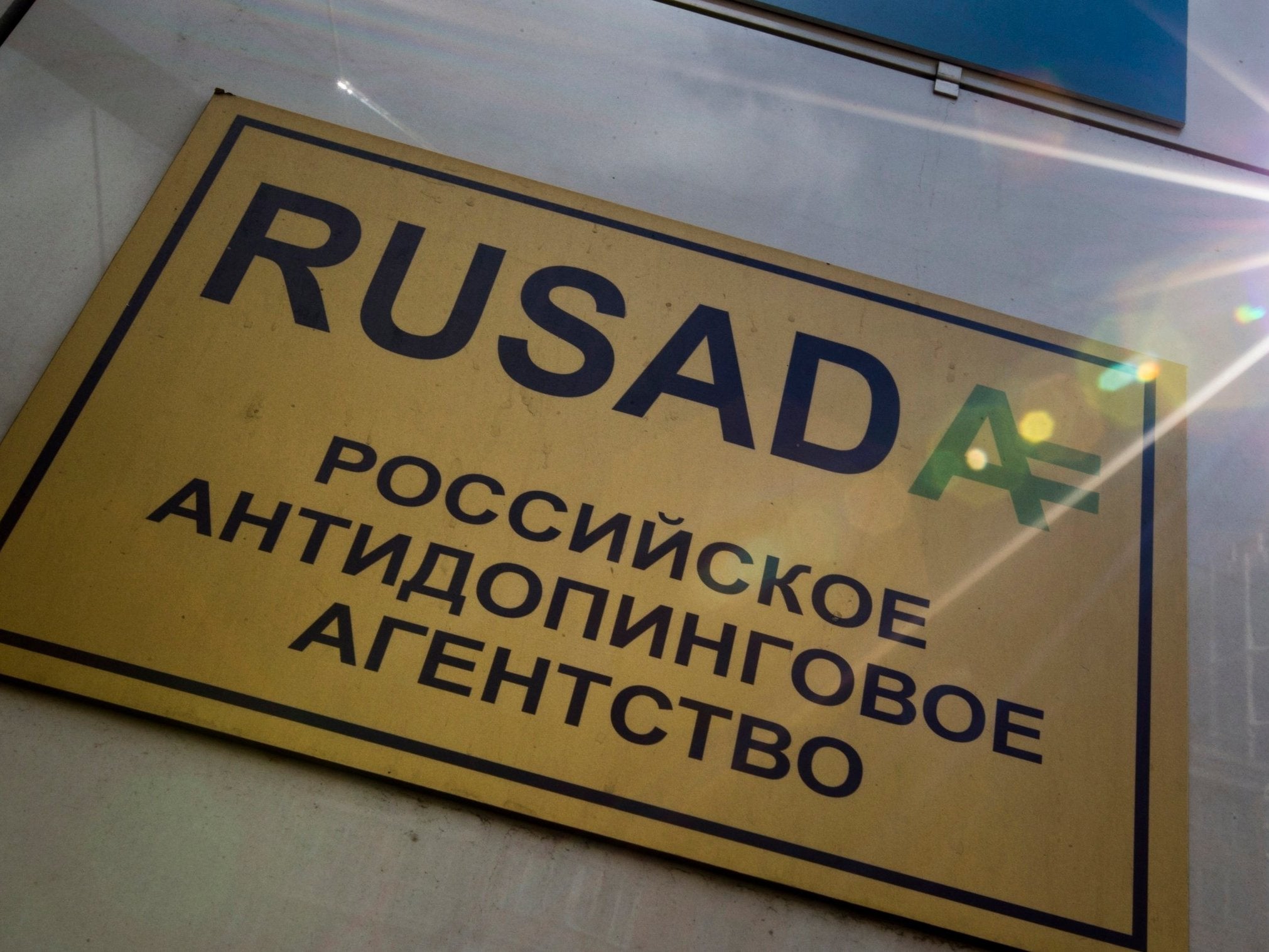Tokyo 2020 Olympics: Russia facing potential ban over inconsistencies in anti-doping data
Russia also faces being stripped of existing hosting rights for sporting events and being barred from securing new ones, with St Petersburg’s role as one of 12 host cities for Euro 2020 now in jeopardy

Your support helps us to tell the story
From reproductive rights to climate change to Big Tech, The Independent is on the ground when the story is developing. Whether it's investigating the financials of Elon Musk's pro-Trump PAC or producing our latest documentary, 'The A Word', which shines a light on the American women fighting for reproductive rights, we know how important it is to parse out the facts from the messaging.
At such a critical moment in US history, we need reporters on the ground. Your donation allows us to keep sending journalists to speak to both sides of the story.
The Independent is trusted by Americans across the entire political spectrum. And unlike many other quality news outlets, we choose not to lock Americans out of our reporting and analysis with paywalls. We believe quality journalism should be available to everyone, paid for by those who can afford it.
Your support makes all the difference.Russia could be set for a new ban from major international sporting events like next summer’s Olympic and Paralympic Games over inconsistencies in anti-doping data.
The World Anti-Doping Agency’s executive committee will gather on 9 December to consider a formal recommendation from its independent compliance review committee (CRC), which is expected to call for the country’s national anti-doping agency Rusada to be declared non-compliant over the anomalies in laboratory results.
The data in question relates to a period from January 2012 to August 2015 and was obtained by Wada in January of this year under the terms of Rusada’s reinstatement to compliance in September 2018.
Positive findings which were contained in a version of the data acquired via a whistleblower in 2017 were missing from the January 2019 data.
If the ExCo agrees with the recommendations of the CRC – and in the likely event that Russia contests the sanctions – the case would move on to the Court of Arbitration for Sport.
Should Cas find Russia non-compliant and agrees with the sanctions recommended, the country could be facing an almost blanket ban from events like the Tokyo Olympic and Paralympic Games, plus football’s Euro 2020 tournament which Russia has qualified for.
Russia also faces being stripped of existing hosting rights for sporting events and being barred from securing new ones, with St Petersburg’s role as one of 12 host cities for Euro 2020 now in jeopardy.
Wada’s intelligence and investigations (I&I) department had been studying responses from the Russian sports ministry regarding the inconsistencies in the data.
They were set a three-week deadline to provide the responses in September, which expired on 8 October.
The fact that a recommendation will be made to the ExCo indicates that the explanations provided were not deemed satisfactory.
It is not yet clear precisely what sanctions the CRC will recommend, but under the International Standard for Code Compliance by Signatories adopted in April 2018 it could include tougher sanctions than Russia has faced previously.
A statement released by Wada on Monday afternoon read: “The World Anti-Doping Agency (Wada) confirms that Wada’s independent Compliance Review Committee (CRC) met yesterday, 17 November, to consider a report from the Agency’s Intelligence and Investigations Department (I&I) and independent forensic experts and, accordingly, to discuss the ongoing compliance procedure brought against the Russian Anti-Doping Agency (Rusada).
“In line with the process, the CRC will now bring a formal recommendation to the Wada executive committee (ExCo), under the chairmanship of WADA President Sir Craig Reedie whose term of office runs until December 31, 2019. The ExCo is scheduled to meet on 9 December to discuss the recommendation.”
The decision to reinstate Russia was heavily criticised, and Wada’s executive committee is set to face a great deal of scrutiny over how it handles the case now.
Russia’s national anti-doping agency Rusada was initially declared non-compliant in November 2015.
At first the doping scandal centred around track and field, but widened out to include other sports as further investigations were conducted.
An independent inquiry led by Professor Richard McLaren in 2016 found that “state-sponsored” and “systematic” doping had occurred across multiple sports.
Russian athletes were not banned outright from the 2016 Rio Olympics, instead individual international federations had to vet competitors and declare whether they were considered clean.
Wada opted not to change Rusada’s non-compliant status in November 2017 and Russian athletes at the 2018 Winter Olympics had to compete as ‘Olympic Athletes from Russia’ (OAR), rather than under the Russian flag.
Russia was barred from the World Athletics Championships in Doha earlier this year, having also been kept out of the event in London in 2017.
PA
Join our commenting forum
Join thought-provoking conversations, follow other Independent readers and see their replies
Comments